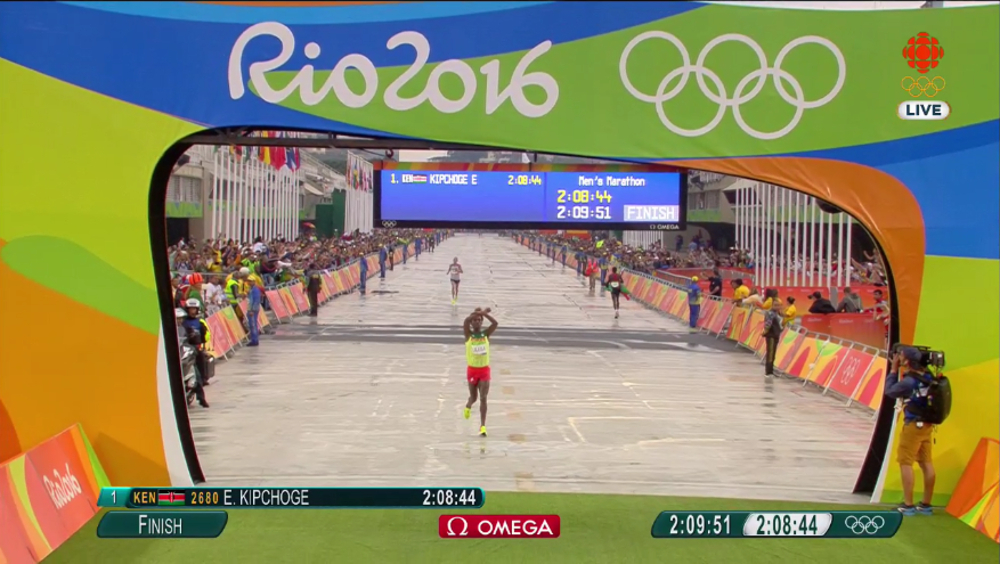Ethiopian Feyisa Lilesa lands in the U.S. after staging political protest in Rio
Ethiopian Feyisa Lilesa has arrived in the United States after staging an anti-government protest during the Olympics putting his life at risk.

Olympic silver medallist Feyisa Lilesa has arrived in the United States after he said he was seeking asylum because of an anti-government protest he staged at the Rio marathon. His arrival was first reported by BBC News. The Ethiopian crossed his arms above his head, in solidarity with the Oromo people, as he finished the Olympic marathon in August.
The protest prompted Lilesa to say after the marathon, “If I go back to Ethiopia, they will kill me.” The Oromo people have been protesting against the Ethiopian government outside of the capital, Addis Ababa, for extending the city’s municipal boundary on to their land. According to Human Rights Watch, government security forces have killed more than 400 people between November 2015 and June 2016.
RELATED: Quebec City Marathon winner Ebisa Ejigu replicates Olympic medallist’s political protest.
Lilesa’s family remains in Ethiopia as he arrived in the United States this week. A crowdfunding campaign has raised more than US$160,000 to support travel and living costs and to aid his family in Oromia, home to much of the country’s Oromo people. Lilesa was seeking asylum because he feared for his life if he were to return home though the government stated that he would receive a “heroic welcome.”
Per NBC Sports, Lilesa’s agent has not responded to a message seeking confirmation.
According to the American Immigration Council, asylum in the United States is “a protection granted to foreign nationals already in the United States or at the border who meet the international definition of a ‘refugee.'” The organization says that asylum applications can “take years to conclude.”
The deputy spokesperson at the U.S. Department of State acknowledged Lilesa in August and his goal of seeking asylum in the United States but stated that it is handled by the Department of Homeland Security.
RELATED: Runner from Jordan finishes last in Olympic marathon but was all smiles.
Lilesa, 26, is one of the top distance runners in the world with a marathon time of 2:04:52 that ranks him in the top-10 in history. He finished second to Eliud Kipchoge in the marathon at the Olympics, the final athletics event of the Rio Games in August. Though staging political protests at the Olympics is banned, Lilesa was not disciplined for making an “X” over his head at the end of the race.
Following in Lilesa’s lead recently was Ebisa Ejigu, who finished the Quebec City Marathon in first and crossed his arms in protest as he finished the race. The Toronto resident will race again at the Montreal half-marathon on Sept. 25. See video of Ejigu’s protest here.


